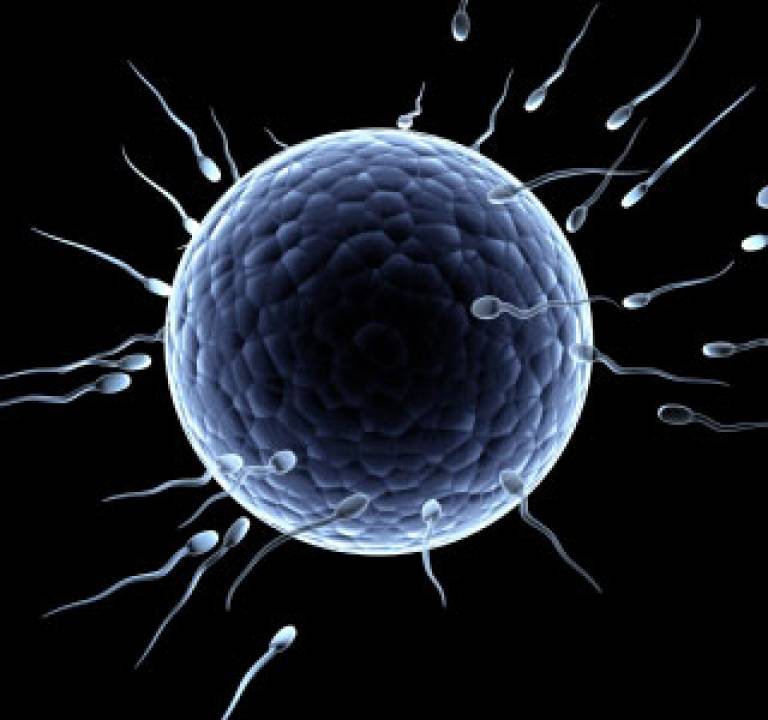Genetic link with human male infertility identified
1 October 2010
Links:
 ucl.ac.uk/ich" target="_self">UCL Institute of Child Health
ucl.ac.uk/ich" target="_self">UCL Institute of Child Health
A genetic trait formerly linked to some cases of female infertility is also linked to some male infertility, according to new research from UCL Institute of Child Health
scientists working with the Institut Pasteur in Paris.
One in seven couples worldwide has difficulty conceiving a child, and male infertility is thought to account for nearly half of those cases. Although the cause of male infertility is often unknown, scientists have now discovered a genetic alteration that disrupts sperm production in otherwise healthy men. The research, published in the American Journal of Human Genetics, provides new insight into one cause of male infertility.
Dr Ken McElreavey and Dr Anu Bashamboo from the Pasteur Institute in France and Dr John Achermann, a Wellcome Trust Senior Fellow from the UCL Institute of Child Health examined whether the NR5A1 gene might be involved in some cases of male infertility.
"Many genes are known to be essential for the production of sperm, but there are surprisingly few single gene changes that have been conclusively demonstrated to cause a failure of sperm production in humans," explains one of the study authors.
The NR5A1 gene codes for a key protein
called steroidogenic factor 1 that regulates fetal, prepubertal and
adult sex development. Previous work had shown that NR5A1
mutations are associated with severe defects in the development of the
testes or ovaries as well as significant anomalies of the male external
genitalia.
The researchers identified seven men with severe failure to produce sperm who carried changes in the NR5A1 gene and showed that the mutations impaired the ability of the steroidogenic factor 1 protein to regulate the transcription of key reproductive genes. The mutations were associated with altered levels of sex hormones and, in the one case studied, mild abnormalities in the cellular structure of the testes. Similar genetic alterations were not observed in more than 2000 control samples.
These findings suggest that changes in NR5A1 are not just associated with severe and obvious defects in reproductive development. The authors conclude that approximately four per cent of men with otherwise unexplained failure to produce sperm carry mutations in the NR5A1 gene.
UCL context
The UCL Institute of Child Health, in partnership with Great Ormond Street Hospital, is the largest centre in Europe devoted to clinical and basic research and postgraduate teaching in children's health.
Great Ormond Street Hospital, along with four of Britain's other world-renowned medical research centres and hospitals, forms part of UCL Partners, a collaboration of world-class researchers and clinicians to create Europe's strongest academic health science partnership, focused on preventing and treating major diseases that affect the populations in London, the UK and worldwide.
Related news
New
research: infant nutrition and obesity
Study into
potential of vitamins to reduce birth defects
 Close
Close

